Poet Suong Nguyet Anh. Photo courtesy |
Journalist Suong Nguyet Anh (1864 - 1921): The first female editor in Cochinchina
At the beginning of the 20th century, in the context of Vietnamese society still bound by feudal etiquette and male-dominated ideology, the appearance of female writer Suong Nguyet Anh was like a breath of fresh air blowing into the women's movement and the fledgling national language press. As the daughter of patriotic poet Nguyen Dinh Chieu, she affirmed the position of women through her writings, as the first female editor in the South.
Born into a Confucian family in An Binh Dong village (now An Duc commune), Ba Tri district, Suong Nguyet Anh's real name is Nguyen Thi Ngoc Khue. Since childhood, she inherited the learning tradition and patriotism from her father. After many life events, she chose a life of chastity, raising her children herself and continuing her career in education and practicing medicine to save people. It was the years of dedication to social life that instilled in her a concern for the fate of the nation and the desire to open up knowledge for women.
The pinnacle of Suong Nguyet Anh’s social and journalistic career was when she became editor-in-chief of “Nu gioi chung” – the first newspaper for women in the South, published weekly from February 1, 1918. In a society where women writing for newspapers was still considered “going beyond the rules of propriety”, her action was like “ringing the bell in Saigon” to awaken a new voice for women. Under her management, the newspaper was not simply a literary forum, but also a place to promote self-study, vocational training, discuss home economics and especially criticize social injustices imposed on women.
Through each issue, she not only affirmed the position of women in spiritual and social life, but also inspired the fight for equality, encouraged women to leave the boudoir, boldly participate in social work, following the example of Ba Trung and Ba Trieu.
Suong Nguyet Anh is not only a journalist, but also a pioneer of feminism through her actions and thoughts. Every article and column under her pen is imbued with a progressive spirit, respecting the value of women and encouraging them to take control of their lives. Although “Nu gioi chung” only existed for more than 5 months, its spread went far beyond the framework of a newspaper, becoming a symbol of the struggle movement of Vietnamese women in the early transitional period.
The power of her pen lies not in the flashiness of her words, but in her sincerity, integrity and spirit. Her poems and newspaper editorials clearly show a profound, courageous soul, and a vision that transcends the times. That is what makes contemporary and later scholars admire her especially, not only as a talented female writer, but also as a pioneer on the cultural and ideological front.
More than a century after her death, Suong Nguyet Anh is still remembered as a model of intelligence, virtue and dedication. Many roads, schools, journalism and cultural awards bear her name as a tribute to the woman who laid the foundation for women’s voices in the national language press. As editor-in-chief of “Nu gioi chung”, Suong Nguyet Anh not only paved the way for future generations of female journalists, but also affirmed that Vietnamese women can contribute their voices to the common progress of society.
Journalist Trung Nguyet (1909 - 1976): A combative political writer in the early 20th century
Journalist Bao Luong - Nguyen Trung Nguyet. Photo archive |
Born in 1909 in My Thanh village, Ba Tri district (now Ben Tre province), Nguyen Trung Nguyet showed intelligence and a special love for literature from a young age. Despite being a girl in a male-dominated society, she was still taught Chinese and Vietnamese, and soon became famous for her poetic talent and sharp literary ability. At the age of 16, her pen name Trung Nguyet appeared regularly in Than Chung newspaper in Saigon, receiving praise from editor Nguyen Van Ba - one of the prestigious writers at that time.
But Nguyen Trung Nguyet did not choose to stop at the position of a talented female writer. Witnessing the brutality of French colonialism and the suffering of the people, she soon nurtured the will to save the country. Refusing marriages of equal social status to the children of rich pro-French families, Trung Nguyet boldly declared: "Until the national revenge is paid, I will not die/ The sword is my son, the gun is my husband". The verse expressed an iron will, overcoming all traditional constraints, to choose the great turning point of her life.
In 1926, Trung Nguyet joined the Vietnam Revolutionary Youth Association. That same year, she was sent to Guangzhou (China) to attend a political training course led by leader Nguyen Ai Quoc. As the only woman in a group of six people who secretly crossed the border, she sacrificed her long hair and disguised herself as a man to reach safety. After the course, Trung Nguyet was assigned to be in charge of the Women's section of Thanh Nien newspaper - the mouthpiece of the Revolutionary General Department.
Not only writing articles and poems, Nguyen Trung Nguyet was also the one who laid the foundation for the revolutionary women's movement in the South. At the end of 1927, she returned to the country to work secretly, campaigning for the establishment of the Women's Union. Only 1 year later, in the Barbier Street case, she was arrested by the French colonialists and sentenced to 8 years in prison at the Saigon Central Prison. Despite being imprisoned, she did not stop writing, continuing to use her pen as a weapon of war.
In 1937, Nguyen Trung Nguyet was released. Although she could not continue to directly participate in revolutionary activities due to her health and social situation, she never gave up her ideals. Under the pen name Bao Luong, she left behind a huge legacy of thousands of poems and many political works rich in fighting spirit and humanity, spanning the years before, during and after her imprisonment.
Journalist Bao Luong - Nguyen Trung Nguyet passed away in 1976. Her life was a heroic epic, where patriotism blended with artistic talent, creating the image of a complete female soldier - journalist - poet. Not only a journalist, she was a pioneering voice of Vietnamese women stepping out of the shadows, contributing to paving the way for the next generation of female revolutionary intellectuals to continue the path of fighting for the nation and justice.
Journalist Tran Van Kiet (1911 - 1943): A lifetime dedicated to revolution and journalism
Journalist Tran Van Kiet. Photo courtesy |
Mr. Tran Van Kiet is an excellent son of Phu Phung village, Cho Lach district. He is a shining symbol of patriotism, of a communist soldier and a devoted revolutionary journalist.
Born in 1911, in a rich farming family, Tran Van Kiet was imbued with revolutionary ideals early on. He entered the struggle path from 1925 - 1926, when the patriotic movement rose throughout the South. With the desire to liberate the nation, in France, he became a member of the French Communist Party and continued to study and practice theory in the Soviet Union, preparing for a long-term career serving the Vietnamese revolution.
Returning to the country under the direction of the Central Committee, Tran Van Kiet became one of the pioneering journalists who contributed to stirring up the spirit of patriotism through each page of his writings. In his role as leader and editor of the Dan Chung newspaper, he not only wrote for the newspaper but also organized, managed and directly fought against the French colonialists on the front of speech. That was the period when each printed newspaper was a bomb exploding into the enemy's ramparts, each article was a stroke of the pen cutting into the oppressive system. Despite facing lurking dangers, he still steadfastly moved forward, and when he was arrested, not a single confession was revealed despite being brutally tortured.
In the Kham Lon prison and later the Ta Lai camp, he continued to sow the seeds of idealism. From fellow prisoners to young cadres, everyone who had contact with Tran Van Kiet was inspired by his intelligence and devotion. When he escaped from prison and returned, he continued his journalism work with the Giai Phong newspaper, until the day he heroically fell under the revenge of the French secret police at the Catinat police station in 1943, when he was only 32 years old.
Tran Van Kiet's life is a silent, heroic epic. He gave up a brilliant career, a rich life and a private home to choose the most thorny path - devoting himself to the revolution and the nation. As researcher Vu Hoai An once commented, the birth and development of Dan Chung newspaper bears the deep mark of Mr. Tran Van Kiet, a patriotic intellectual, a true communist.
Today, his name is given to a high school and a street in the center of Cho Lach district as a sacred reminder of the value of patriotism and noble sacrifice. His statue in the campus of Tran Van Kiet High School is not only a symbol of history, but also a torch to light the way for many generations of students, with a message to today's generation: Live up to those who have fallen with knowledge, loyalty, the spirit of continuous learning and dedication for the development of the homeland.
Martyr journalist Duong Tu Giang (1914 - 1956): A shining example of revolutionary optimism
Journalist Duong Tu Giang. Photo archive |
Duong Tu Giang's real name is Nguyen Tan Si, born in 1914 (some documents say 1918), in Nhon Thanh commune, Ben Tre city today. He died on December 2, 1956. He passed Thanh Chung (French - Vietnamese program). At the same time, he received both degrees under the French program, Brevet Élémentaire and BEPC.
Yang Zijiang was a passionate man, a staunch revolutionary, and a multi-talented artist. He wrote stories, novels, poems, translated foreign works, and wrote and staged plays. Yang Zijiang's journalistic activities can be divided into three periods.
The first period, from around 1936, when he started leaving My Tho for Saigon until mid-1950, before he escaped to the resistance base in the Southwest. During the early part of this period, he collaborated and wrote for a number of newspapers in Saigon such as: Mai, Du luan, Song, Thanh nien, Justice-Cong ly... After the Southern resistance war broke out, Duong Tu Giang's journalistic activities became more vibrant and enthusiastic. In 1946, he founded the Van Hoa newspaper and directly served as editor-in-chief.
In early 1947, after Duong Tu Giang wrote and published an article in the Van Hoa newspaper denouncing the French expeditionary army for oppressing, looting and killing the Vietnamese people, the newspaper was suspended and he was imprisoned in the Big Prison in Saigon. While in prison, he continued to contribute articles to the secret newspapers: Tieng Tu and Dem Kham Lon.
After being released from prison after more than 9 months of being detained and terrorized, Duong Tu Giang rushed into the press front. He joined the editorial board of Nay...Mai newspaper, wrote articles for Tieng Chuong newspaper, was editor-in-chief of Em weekly newspaper, collaborated with Than Chung newspaper, was director and editor-in-chief of Viet Bao newspaper... After each newspaper was closed, he immediately created or directly worked with a new newspaper as a weapon of struggle.
In the second period, from the end of 1950 until the Geneva Agreement on Vietnam was signed in 1954, Duong Tu Giang worked in the resistance base area. At first, he worked for the Cuu Quoc newspaper. Later, he was assigned to organize a theater troupe to perform for cadres and people, improving the cultural life of the resistance base area.
The third period, from the end of 1954 until he was captured and sacrificed by the enemy. This was a very difficult and dangerous period when the Ngo Dinh Diem government terrorized revolutionaries and opponents. Under the direction of the Party organization, Duong Tu Giang continued to write for newspapers, changing different pen names to publish in progressive newspapers. He founded Binh Dan Newspaper to directly propagate the revolutionary line of the Communist Party. After Binh Dan Newspaper was closed, he successively became editor-in-chief of Dien Bao, Thu Nam, and Duy Tan newspapers.
In October 1955, while editing a morasse for Duy Tan newspaper, he was captured by the enemy and taken to Catinat police station, then to Bien Hoa Rehabilitation Center (Tan Hiep prison). Here, he contacted the Communist Party organization in the prison to organize a movement of prisoners to defend themselves and fight against the enemy's oppression. At the end of 1956, Duong Tu Giang and the party cell in the prison organized a mass prison break, but 20 people failed to escape and died, including journalist Duong Tu Giang.
Currently, a street in District 5, Ho Chi Minh City, is named after the martyr journalist Duong Tu Giang. Every year, the Duong Tu Giang Journalism Award is held in Dong Nai province.
Understanding the fine traditions of generations of journalists through the historical stages of the revolution will help foster the spirit and tradition of patriotism for today's young generation in general and journalists in particular, to continue to build and contribute to the development of the homeland and country in the future.
C. Truc - H. Lia - T. Thao
Source: https://baodongkhoi.vn/vang-danh-nguoi-lam-bao-xu-dua-17062025-a148284.html


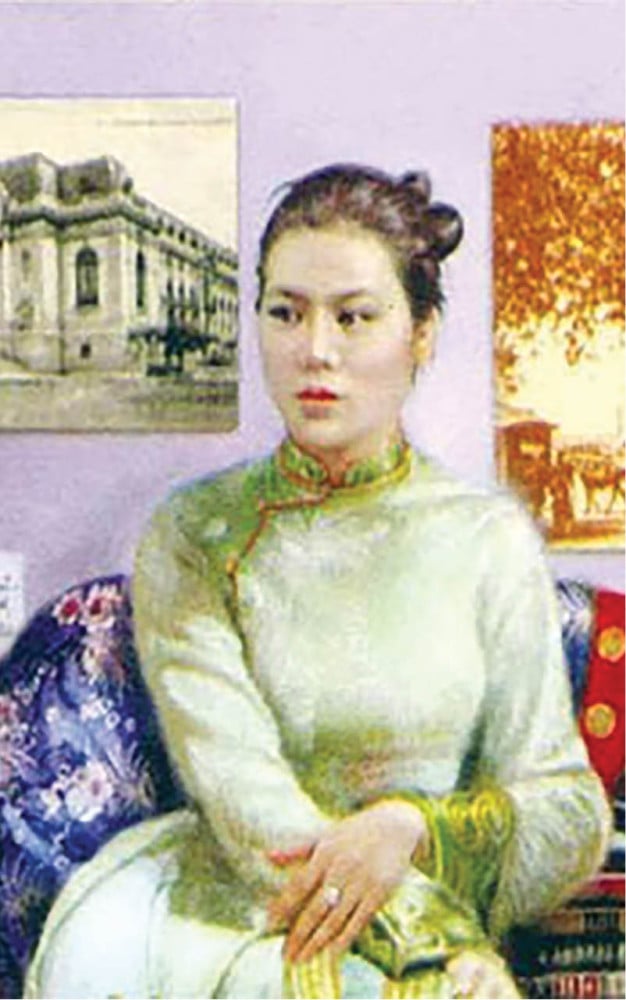
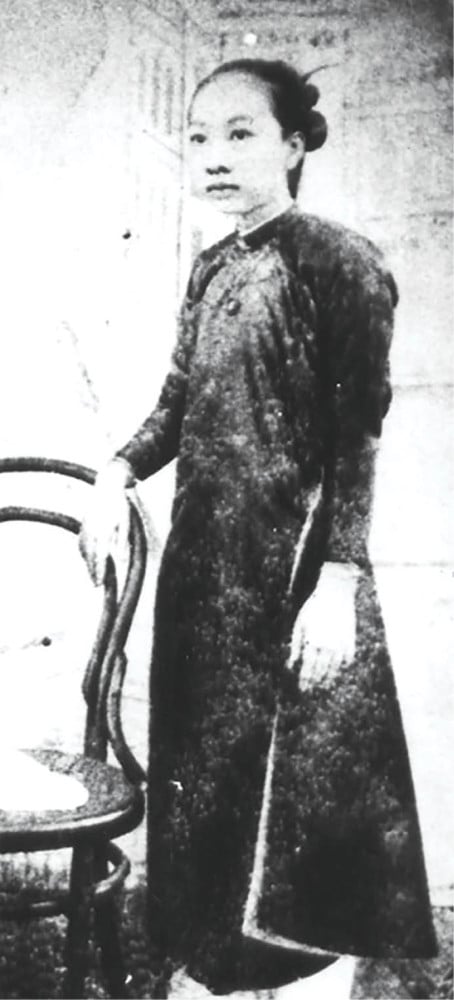
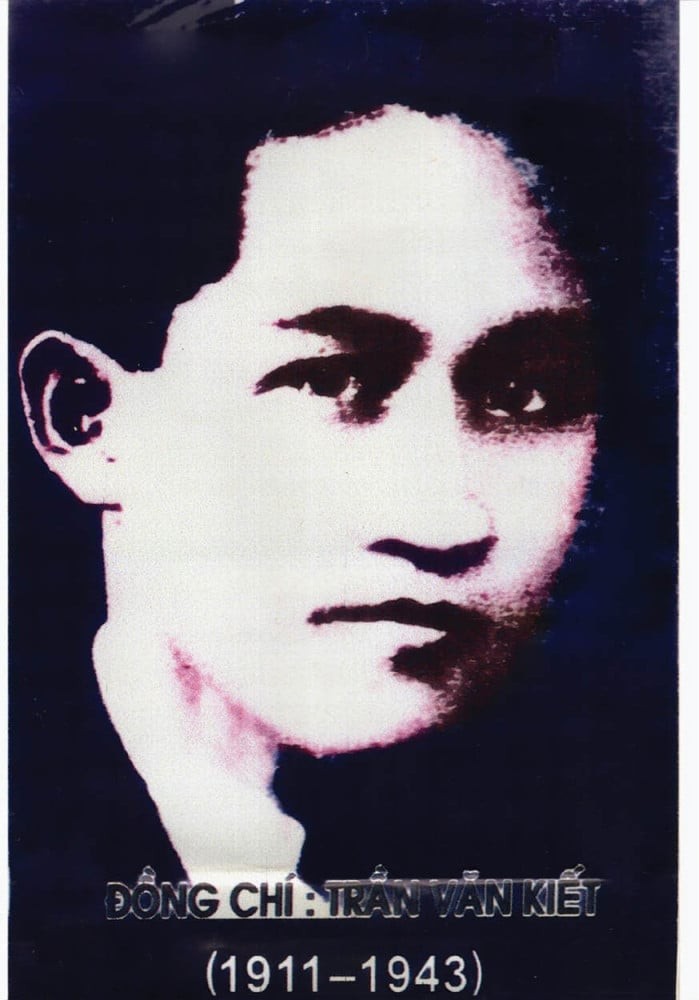
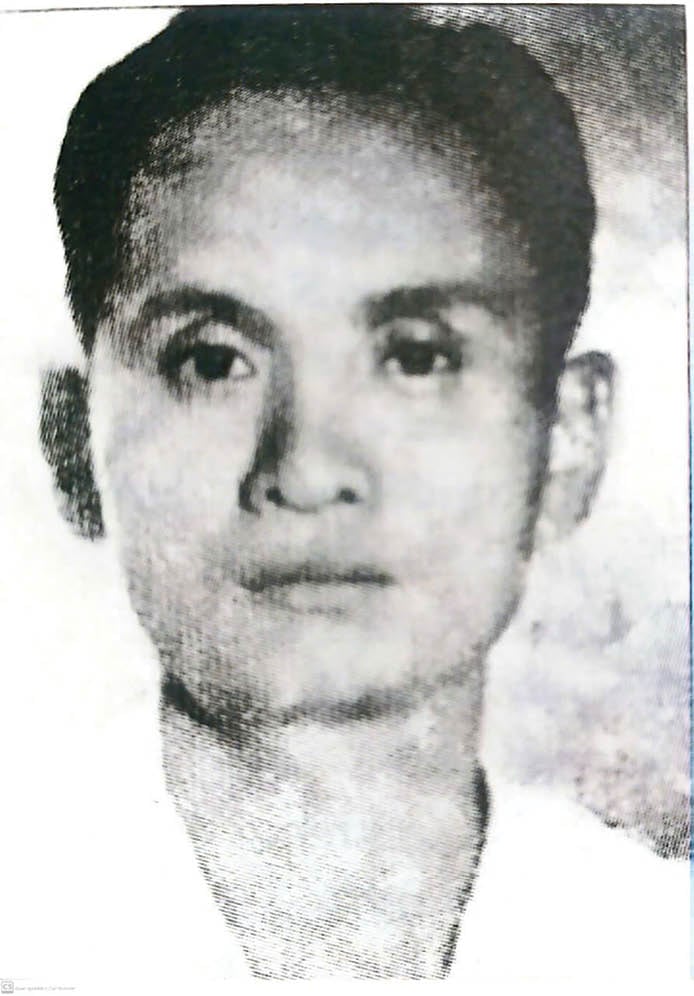
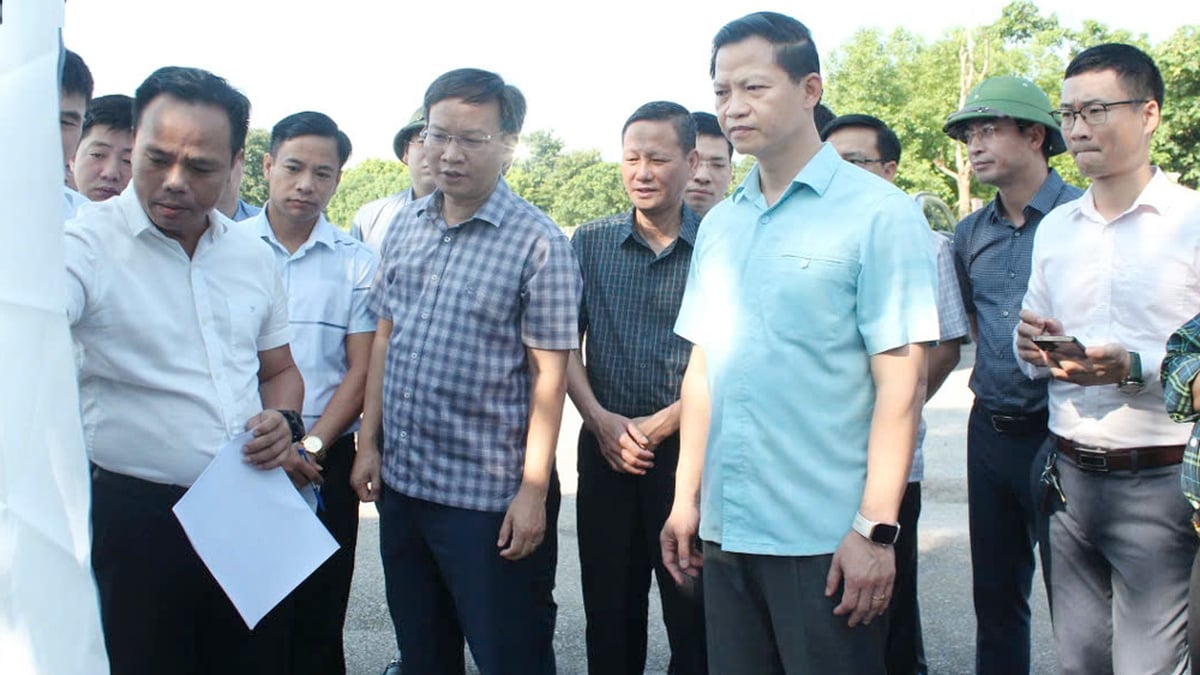
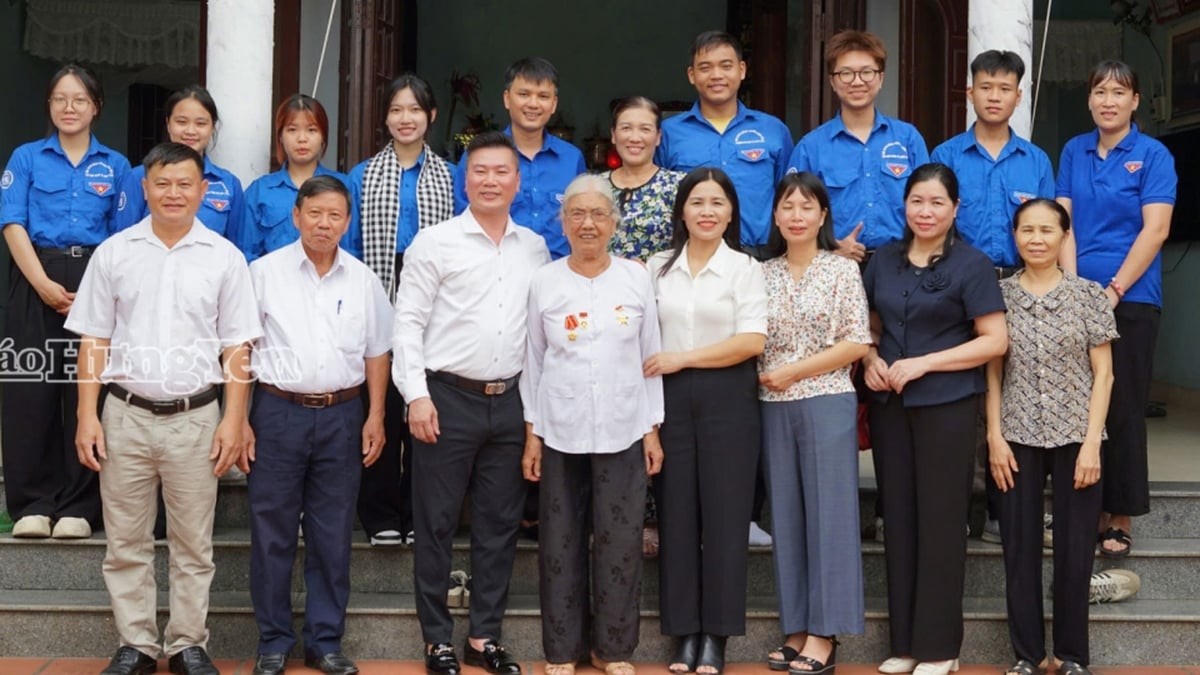




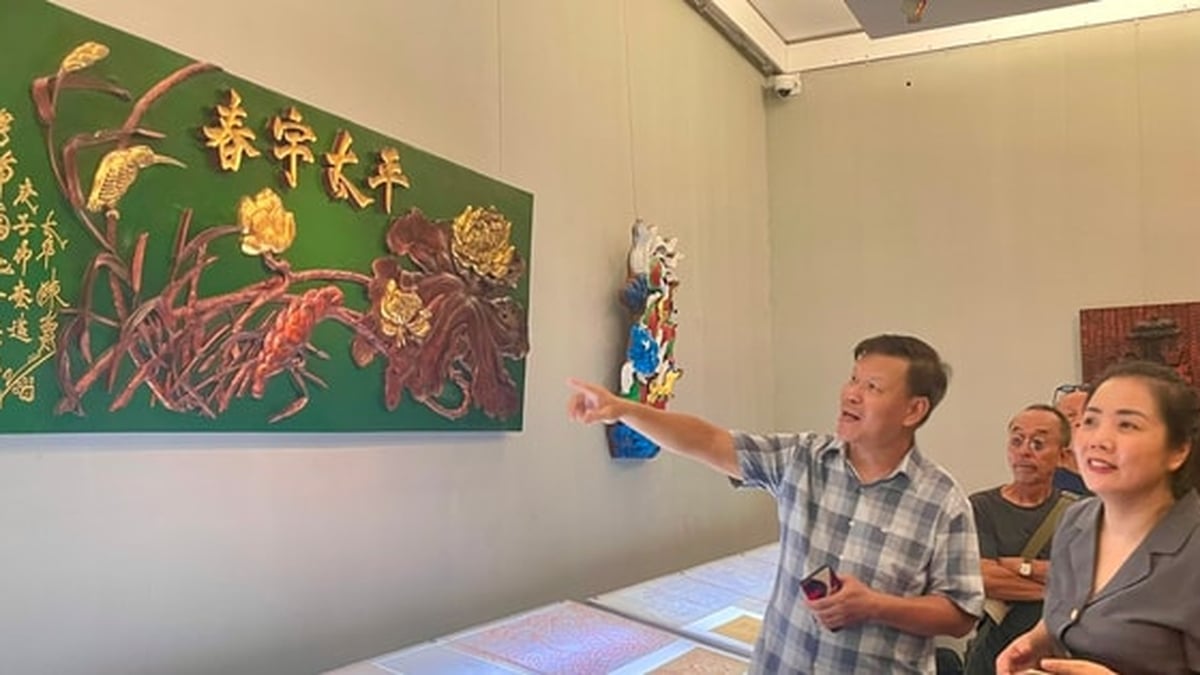
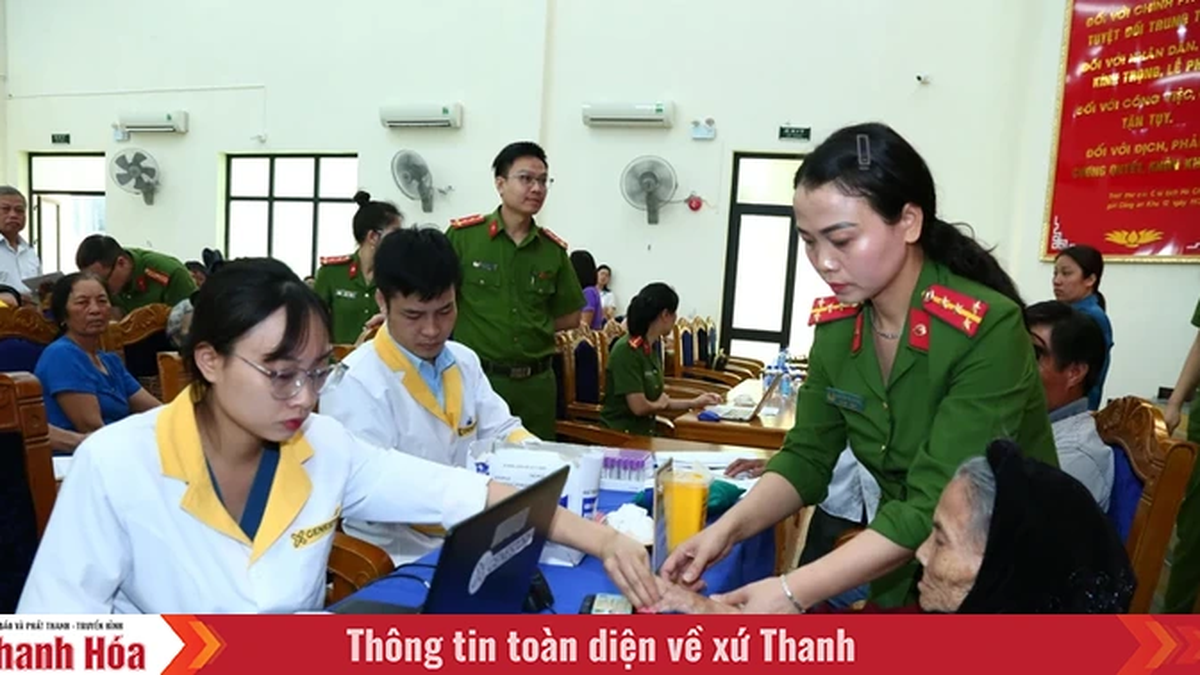

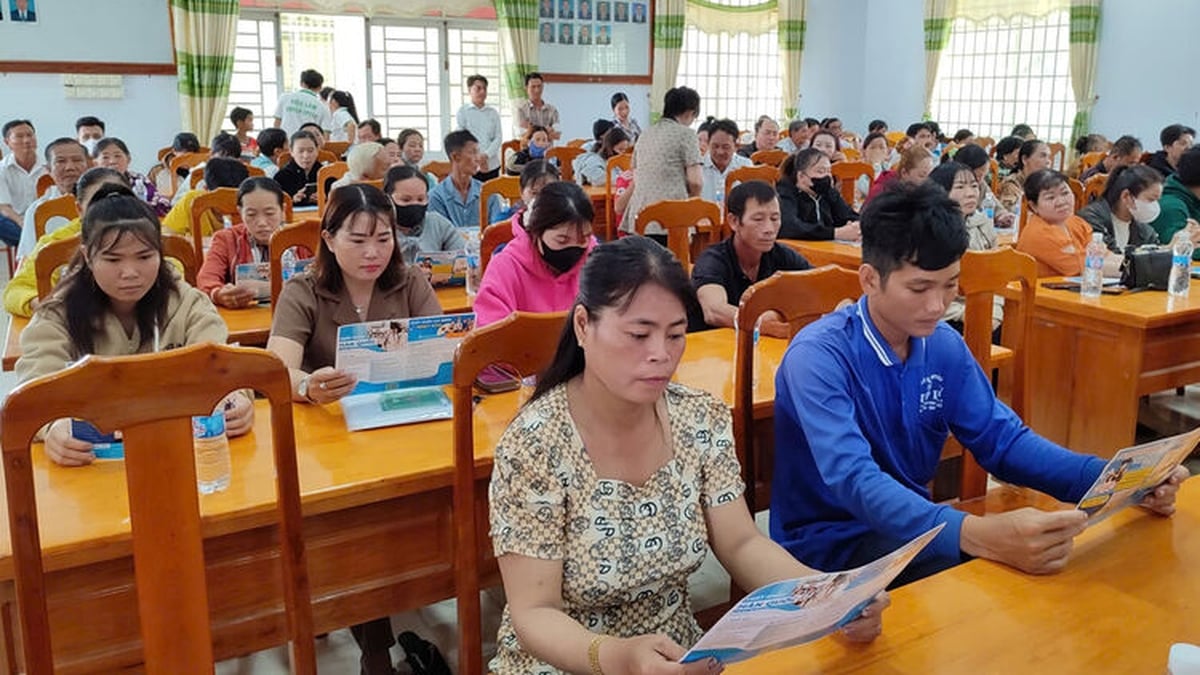






















































































Comment (0)